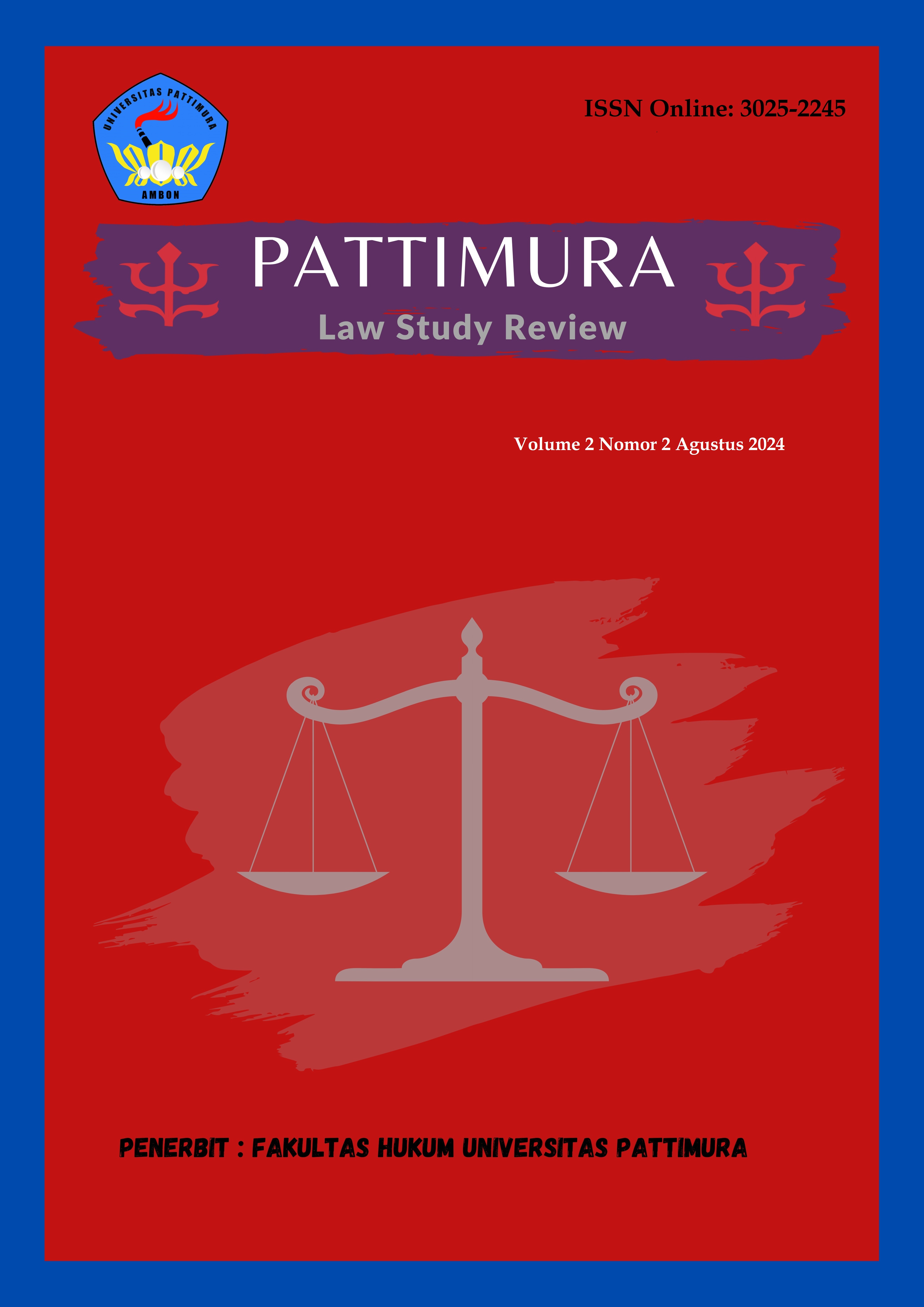Status Tanah Hak Erfpacht Yang Diperjualbelikan
Abstract
Land ownership rights in Indonesia are very diverse, one of which is erfpacht rights. Erfpacht rights are rights to foreign land that have been in effect in Indonesia since colonial times, and were later changed to business use rights and building use rights. In accordance with the law, erfpacht land cannot be transferred to heirs or other parties. After the erfpacht right holder dies, the right to the land ends and the rights are returned to the state. Because, only the right holder has the authority to convert the land, and it cannot be converted by anyone else. So based on the problems above, this research will discuss whether the status of erfpacht land rights that have expired can be traded to other parties, as well as what are the legal consequences of the status of erfpacht land rights being traded. This legal research uses a normative juridical approach using primary, secondary and tertiary legal materials. Collection of legal materials is carried out through literature study and processing. Analysis of legal materials was carried out using a descriptive method using a qualitative approach. Based on the research results, it was concluded that erfpacht rights could be transferred (sold) to other parties and could be subject to mortgage (used as collateral to obtain loans from banks). Erfpacht rights can also be returned to the state, and can be revoked if they do not fulfill the conditions set out in the agreement.
Downloads
References
Jurnal
Kader, M. A. Peran UKM dan koperasi dalam mewujudkan ekonomi kerakyatan di indonesia. JURISMA: Jurnal riset bisnis & manajemen, 8(1), 15-32. (2018).
Ismail, Nurhasan. "Perkembangan Hukum Pertanahan Indonesia: Suatu Pendekatan Ekonomi-Politik." Jurnal Hukum Ius Quia Iustum 18, no. 4 (2011): 489-505.
Soerodjo, Irawan. "Kepastian Hukum Hak Atas Tanah di Indonesia." Jurnal Hukum Pro Justitia 26, no. 4 (2008): 333-349.
Permadi, Iwan. "Perlindungan Hukum Terhadap Pembeli Tanah Bersertifikat Ganda dengan Cara Itikad Baik demi Kepastian Hukum." Jurnal Yustisia 4, no. 2 (2015): 446-468.
Sumarja, FX. "Problematika Kepemilikan Tanah Bagi Orang Asing." Jurnal Dinamika Hukum Vol 12, no. 1 (2012).
Buku
Adrian Sutedi, Peralihan Hak Atas Tanah Dan Pendaftarannya, Jakarta : Sinar Grafika, 2010.
Harsono, Boedi. Hukum Agraria Indonesia: Sejarah Pembentukan Undang-Undang Pokok Agraria, Isi dan Pelaksanaannya. Jakarta: Djambatan, 2008.
Santoso, Urip. Hukum Agraria: Kajian Komprehensif. Jakarta: Kencana, 2012.
Parlindungan, A.P. Konversi Hak-Hak Atas Tanah. Bandung: Mandar Maju, 1994.
Sutedi, Adrian. Peralihan Hak Atas Tanah dan Pendaftarannya. Jakarta: Sinar Grafika, 2014.
Sumardjono, Maria S.W. Kebijakan Pertanahan: Antara Regulasi dan Implementasi. Jakarta: Kompas, 2005.
Hutagalung, Arie S. Tebaran Pemikiran Seputar Masalah Hukum Tanah. Jakarta: Lembaga Pemberdayaan Hukum Indonesia, 2005.
Muljadi, Kartini dan Gunawan Widjaja. Hak-Hak Atas Tanah. Jakarta: Kencana, 2004.
Soekanto, Soerjono. Pengantar Penelitian Hukum. Jakarta: UI Press, 2007.
Limbong, Bernhard. Konflik Pertanahan. Jakarta: Margaretha Pustaka, 2012.
Internet
Copyright (c) 2024 Firda Hawa Tuanaya, Adonia Ivonne Laturette, Novyta Uktolseja (Author)

This work is licensed under a Creative Commons Attribution-NonCommercial 4.0 International License.
Authors who publish their manuscripts in this Journal agree to the following conditions:
- The copyright in each article belongs to the author, as well as the right to patent.
- Authors are able to enter into separate, additional contractual arrangements for the non-exclusive distribution of the journal's published version of the work (e.g., post it to an institutional repository or publish it in a book), with an acknowledgment of its initial publication in this journal.
- Authors are permitted and encouraged to post their work online (e.g., in institutional repositories or on their website) prior to and during the submission process, as it can lead to productive exchanges, as well as earlier and greater citation of published work.
- Authors have the right to self-archiving of the article (Author Self-Archiving Policy)













